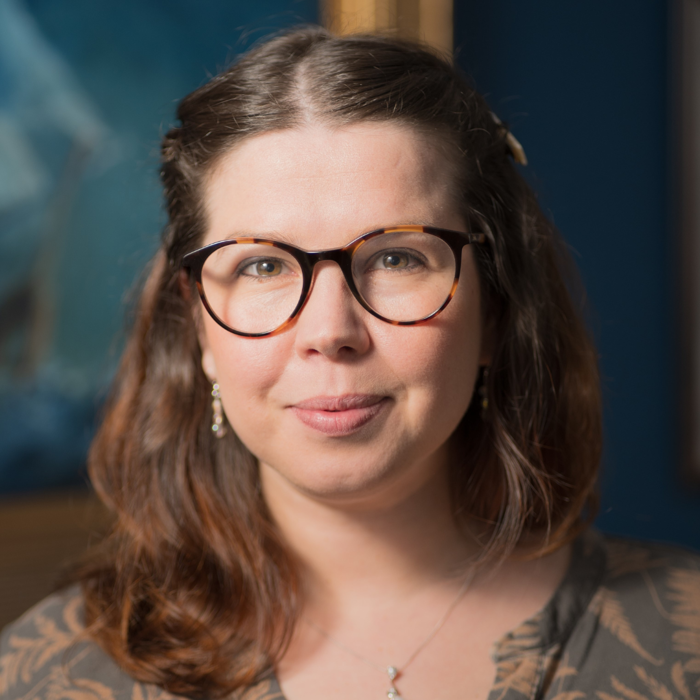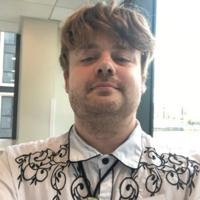Queering Country Music: Conceptualising LGBTQIA+ Voices in a Contested Genre
Thursday 25th April 2024, 12:00 PM - 1:00 PM (London Time)
Country music is a genre that is sometimes assumed to lack LGBTQIA+ participation. Over the past 30 years, scholarship (Rich, 1992; Dickinson, 1999; Hubbs, 2014; Goldin-Perschbacher, 2022; Royster, 2022) has begun to challenge these assumptions and shone a spotlight on the long history of LGBTQIA+ people’s engagement with the genre, as both artists and audiences. This course builds on this emerging field of research to consider the way LGBTQIA+ artists use country as a storytelling medium with potential to represent a broader range of experiences and narratives than the country music industry has historically recognised.
Country music has a self-referential conceptualisation of itself as a genre that is heavily invested in notions of authenticity. On the one hand, this holds potential for the expression of LGBTQIA+ voices. On the other, authenticity is heavily policed by the country music industry who wields this notion to construct and enforce exclusionary ideas of who country music is, marginalising women, people of colour and LGBTQIA+ people, erasing these histories of participation in the genre (Bishop and Watson, 2022; Goldin-Perschbacher, 2022; Moss, 2022; Pecknold, 2013; Royster, 2022; Watson, 2019). At the same time as this discriminatory industry context, LGBTQIA+ people continue to engage with country music and push the genre forward.
This course considers the way songs by LGBTQIA+ artists navigate country music aesthetics and definitions of genre, looking at the voice as a medium for articulating and reworking ideas of authenticity and genre identity. The presentation explores particular songs in depth covering the period from the 1970s until the present day, featuring artists such as Lavender Country, Chely Wright, Namoli Brennet, Indigo Girls, Jake Blount, and Allison Russell.
There will be a consideration of how each song navigates the genre, which has both potential and risks for LGBTQIA+ artists, dedicating particular attention to the way trans artists engage with precarious notions of authenticity. Through paying close attention to these songs, this course aims to showcase LGBTQIA+ voices in country music and to suggest ways that these artists challenge our understand of who and what country music is.
James Barker
James Barker (he/they) is a PhD candidate in Music and Media at Newcastle University, UK. His PhD research explores the potential of queer reading as a strategy to assert LGBTQIA+ belonging in country music, using Dolly Parton as a case study.
Sorry, this is an archived short course...
We have plenty of upcoming short courses coming soon. See details of some of them below or look at the full list of short courses.

Monday 7th July 2025
2:00 PM - 4:00 PM
Tuesday 8th July 2025
2:00 PM - 4:00 PM
Wednesday 9th July 2025
2:00 PM - 4:00 PM
Friday 11th July 2025
2:00 PM - 4:00 PM
Monday 14th July 2025
2:00 PM - 4:00 PM
Tuesday 15th July 2025
2:00 PM - 4:00 PM
Wednesday 16th July 2025
2:00 PM - 4:00 PM
Friday 18th July 2025
2:00 PM - 4:00 PM
(London Time)
Introduction to statistics and working with quantitative data for Voice Professionals: 8-Session Online Bootcamp

Dr David Cane
This certificated statistics course is ideal for individuals interested in laying a solid foundation in quantitative research methods. By focusing on essential statistical principles, you will be equipped with the tools to understand and apply quantitative research techniques effectively. Statistics is a crucial component of quantitative research; mastering it will enable you to grasp quantitative methods more confidently and precisely.


Tuesday 15th July 2025
5:00 PM - 7:00 PM
(London Time)
Exploring the roots of the tongue: Ideas for performance

Walt Fritz
As a relative outsider looking into the voice and performance world, I witness the bell curve of thoughts and actions on how the tongue contributes to voice problems and how best to tame that tension. Traditional ways of taming tongue tension seem adequate (or would seem so, based on feedback), so what is different and new? In this short course for the Voice Study Centre, Walt Fritz will introduce the learner to variations on self-applied tongue stretches and exercises.


Wednesday 16th July 2025
2:00 PM - 4:00 PM
(London Time)
Emotion and Performing Accents and Dialects: why does Emotion Get in the Way?

Louisa Morgan
At points of heightened emotion, it is common for actors working in an accent to default to their natural speech. How do we help performers to avoid this issue and provide them and their directors with the confidence they need regardless of the emotional demands of the piece? What can we learn from research in vocal expression of emotion to help actors to embody the emotion and keep control of their voice and accent? Our very own Louisa Morgan will guide participants through the latest research and offer practical suggestions for working with performers needing to navigate this challenge.
